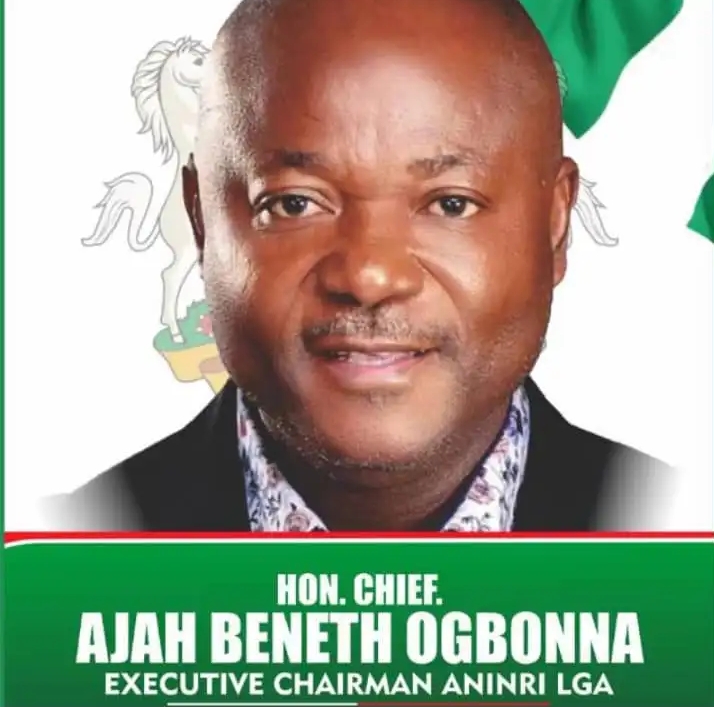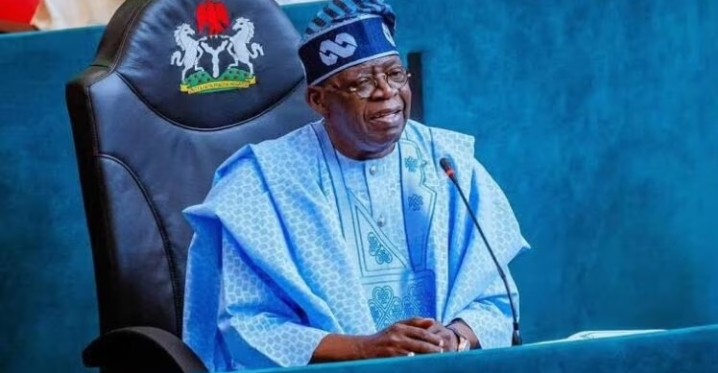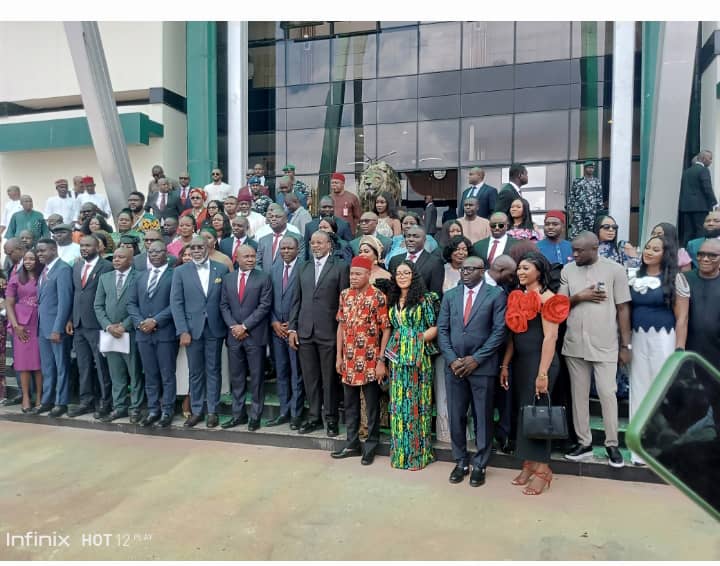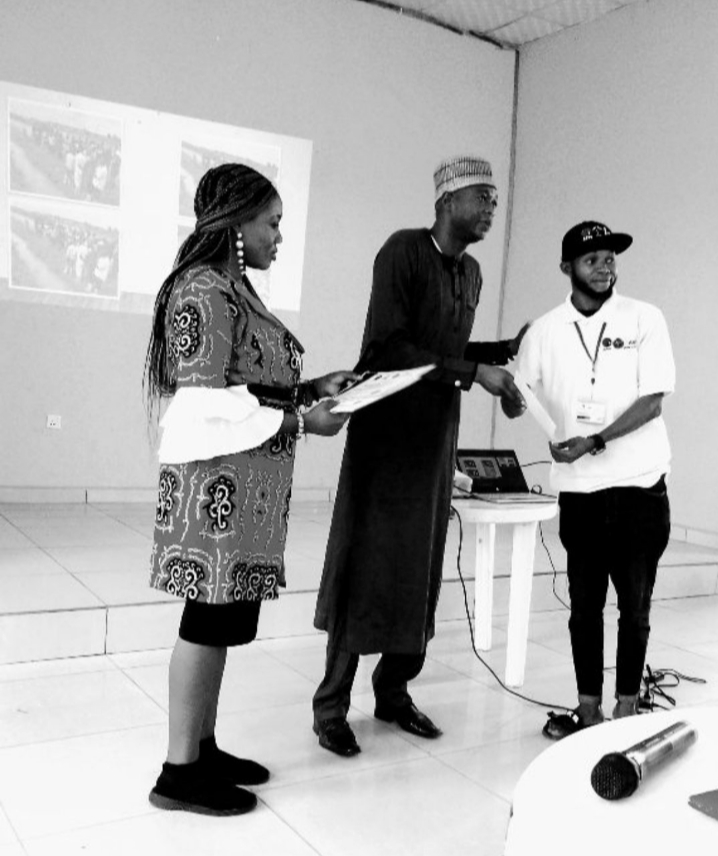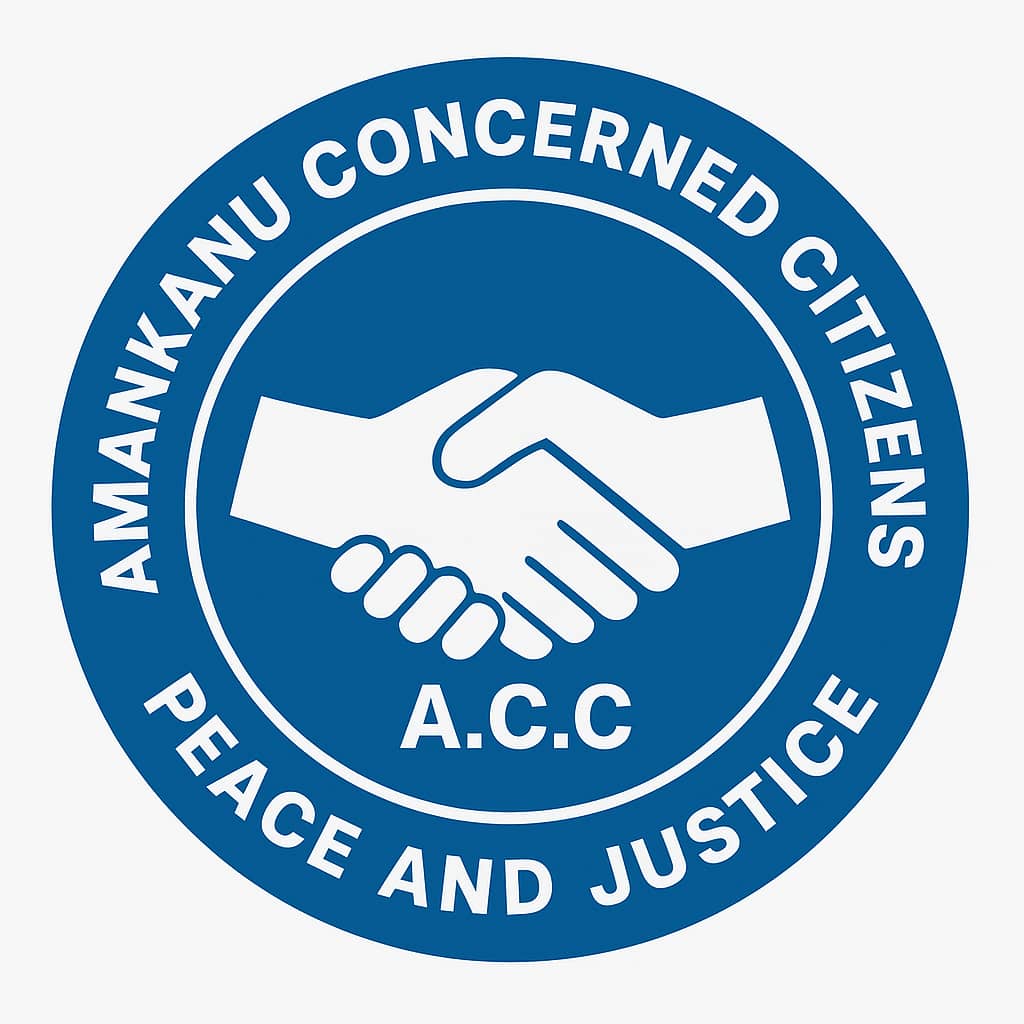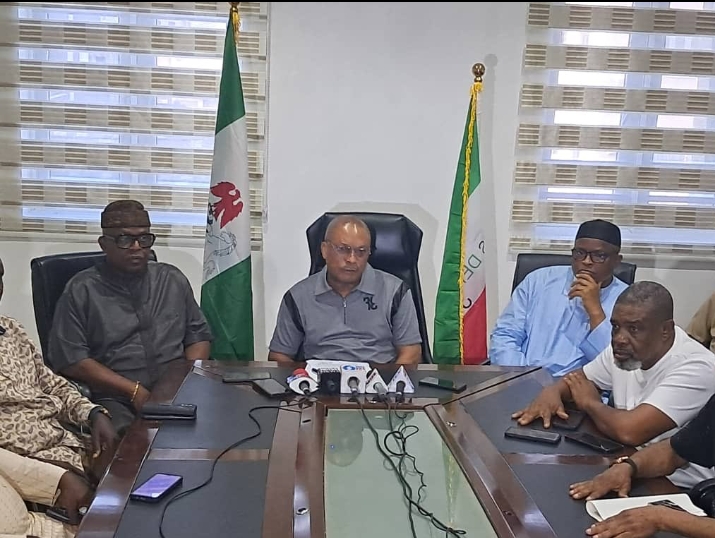Breaking News
PDP’s Rebuilding Strategy in Enugu State
When Elders Feast While the Youths Burn: Ohanaeze’s Shameful Betrayal of Ndigbo!
Enugu Now the Beacon of Renewed Hope — Thanks to Mbah’s Leadership and Nwoye’s Tactical Genius
Defection Fever: Why Blind Followership Could Cost You Your Political Future
DAWN OF A NEW ERA: ENUGU YOUTH FORUM SENDS MESSAGE TO DR. BEN NWOYE
Uzodimma Loses Grip: Ben Nwoye Breaks the Chains of APC Enugu Captivity
“A New Dawn in APC Enugu: Prince of Amuri Kingdom, Dr. Ben Nwoye, Rises Again as Caretaker Chairman
APC Enugu in Total Disarray as “Sleeping Minister” Bows Out in shame Over Fake Certificate Scandal
Aninri 11th Legislative Assembly Reduced to a Rubber Stamp – Fails in Oversight Responsibility
DNA Test Should Be Made Free for All Nigerians – The Voice of the Masses Urges FG
ANINRI LAND REGISTRY BILL CRASHES: EXPOSING THE LEGISLATIVE LEADER’S INCOMPETENCE & INCAPACITATED
Tomorrow Is Here Movement Aninri Chapter Urges Ndi Aninri to Embrace Voter Registration
Senator Osita Ngwu Extends Solar-Powered Borehole to Amagu Okpanku, Aninri LGA
Aninri Talent Display 2025: Showcasing the Future of Entertainment in Enugu State
Unity of Purpose: Gov. Peter Mbah & Senator Osita Ngwu, A Dynamic Duo for Enugu’s Transformation
Idoma Council Nullifies Chieftaincy Titles Bestowed on Tinubu, Others in Benue
ADC Challenges INEC: How Did Osun Register More Voters in Seven Days Than in Four Years?
Senator Osita Ngwu Honoured with Distinguished Education Leadership Award
Tragedy on Enugu-Port Harcourt Express Road as Truck Conveying Goats to Enugu Overturns
Politics of Second Tenure in Aninri: The Injustice Against Late Hon. Bennett Ajah
Enugu North LGAs Receive Over ₦30 Billion in 11 Months – But Where Is the Development?
Enugu North LGAs Receive Over ₦30 Billion in 11 Months – But Where Is the Development?
2027 Elections: “No Room for Mistakes” — INEC Nigeria’s Final Warning
The Significance of the Name Peter Mbah in APC, Enugu State Chapter
2027: Peter Mbah vs Wike — The Battle for Political Survival
Dr. Ben Nwoye Returns to APC as Governor Peter Mbah Finalizes Move to Join the Party
Nkwo Market Obeagu Oduma: The Heartbeat of Agricultural Trade in Aninri
Peter Obi Set To Return To PDP, Get Automatic Presidential Ticket — Says Ex-Governor Modu Sheriff
Atiku Vows to Deliver Ekiti to ADC in 2027, Tells Governor Oyebanji to Prepare Handover Notes
Senator Osita Ngwu Reaffirms Commitment to Timely Completion of Enugu West Constituency Projects
Another Smart School Collapses in Enugu: Achi Uno Ward 2 Site Fails Structural Integrity
Peter Obi Responds to Edo Governor Okpebholo: “I Don’t Need Clearance to Visit Any Nigerian State”
Tinubu Govt. Develops Southern Nigeria, Neglects the North – Says Kwankwaso
₦4 Billion Fraud Case: Court Sets November 25 for Trial of Ex-Anambra Governor Willie Obiano
Enugu Electricity Commission Clarifies Tariff Reduction: “We Didn’t Alter National Power Costs”
MASSIVE DEFECTION ROCKS PDP IN IGBO-EZE NORTH LGA: APC GAINS MOMENTUM AHEAD OF 2027
Senator Osita Ngwu Urges FG to Release Funds for Completion of Abandoned Enugu-Onitsha Road Project
ADVERT NEWS: Maiden Dental Technologists Summit Holds in Abuja
Happy 64th Birthday to His Excellency Peter Obi – Okwute Ndi Igbo!
Tinubu Panics Over ADC Mega Coalition: As The Shape Of 2027 Begins To Form
A section of the smart -school at Isi-uzo LGA Mbu ward 11 collapses
Edo Governor Bans Peter Obi from Entering State, Cites “Security Threat” to His Life
Why Governor Peter Mbah May Consider Joining the ADC Mega Coalition Amid PDP Crisis
2027 Election: Why Only a Northern Candidate Can Defeat Tinubu’s Government
Breaking: Atiku Abubakar Dumps PDP, Joins Forces with Obi, El-Rufai, Amaechi in ADC Mega Coalition
How PDP's Leadership Crisis is Paving the Way for Hon. Edeoga's 2027 Gubernatorial Ambition in Enugu
Wike’s Withdrawal from G-5 Over National Secretary Crisis Deepens PDP’s Internal War
A Trailblazing Year: How Senator Osita Ngwu is Redefining Leadership in Enugu West
Aninri Mourns Hon. Bennett Ajah: A Pillar of Hope and Legacy of Leadership
Breaking: Ratify Udeh-Okoye as National Secretary or Face Mass Exit, S.E Threatens PDP
Rotimi Amaechi: “Lamido and I Would Have Challenged Tinubu’s Government If We Were Still Governors
Breaking news: Aninri Impeachment Saga: Hidden Truth Behind Hon. Philip Igwe's Removal Unveiled
The Giant Stride of Senator Osita Ngwu: Transforming Enugu West through Leadership
ADMINISTRATIVE HOSTAGE OF COUNCILORS BY THE LG CHAIRMEN IN NIGERIA .
Honoring the Legacies of Late; Hon. Mathias Ekweremadu (Eze Igbo) in Aninri and Enugu State
Breaking: Enugu West Unity Forum Endorses Governor Peter Mbah for Second Term in 2027
Breaking: Enugu West Unity Forum Endorses Governor Peter Mbah for Second Term in 2027
Breaking: The Pertinence of Electing His Excellency Governor Peter Mbah for a Second Term
Celebrating the Excellent Leadership of His Excellency Governor Peter Mbah
Governor Mbah Has Developed Enugu State Beyond Party Lines – APC Chieftain Senator Utazi
BREAKING: DEVELOPMENTAL STRIDES: HON. ENG. ANAYO ONWUEGBU'S PROJECTS BRING JOY TO AWGU TOWN
The Rise and Fall of APC in Enugu State
The Rise and Fall of the Labour Party in Enugu State
Breaking: Crisis Looms in Ameke Oduma Autonomous Community Over Power Tussle for President General
Bringing to Light a Refined Character Trait of Honorable Dr. Joe Chukwu: A Portrait of Integrity
Simon Ekpa Faces Justice: Finnish Court Approves Extradition to Nigeria
BREAKING: Federal Court Orders Removal of Tinubu-Appointed Sole Administrator in Rivers State
Breaking: Tinubu Presidency Dismisses U.S. Drug Allegations as Non-Actionable
Breaking: U.S. Court Orders FBI, DEA to Release Files on President Tinubu Tied to 1990s Drug Probe
Obeagu Oduma Cultural Day Celebration 2025: A Grand Showcase of Heritage and Tradition
The Return of Hon. Edeoga: A Testament to Governor Peter Mbah’s Leadership and Unity
Applauding Honorable Ikenga Ugochinyere for His Bold Steps Towards the Release of Mazi Nnamdi Kanu
Applauding the Leadership of Distinguished Senator Osita Ngwu – The People's Senator
Baba One Nation: A Legacy in Music and the Grand Launch of a New Era
HOW JONATHAN VOLUNTARILY AND PEACEFULLY HANDED OVER POWER TO BUHARI IN 2015
Just In: Enugu State Govt, LG Councils Target Establishment of 260 Farm Estates
AN "AUGUST VISIT" TO HON. CHIJIOKE EDEOGA FOR HIM TO RETURN BACK TO THE PDP
RECAP ON VISIONARY STEPS TOWARDS GREATER AGWU TRANSFORMATION AGENDA BY HON ENGR ANAYO ONWUEGBU
Breaking: Fresh insecurity looms in Aninri as suspected fulani herdsmen murdered Aninri son
48 thousand overcrowded inmates awaiting for trials in Nigeria Prisons – NCoS
Governor Mbah’s Aide, Prof. Okereke Celebrates Father’s 87th Birthday with Inspiring Book Launch
Just In: Tinubu led government submit Extradition Requirements for Simon ekpa To finnish Government.
Sad news: Many Persons Dead In Anambra During Stampede At Rice Sharing Event In Okija
Russian-ukraine war: I'm ready to meet Donald Trump For Negotiations president Putin Said.
Just In: Lagos Mosque pull Down 'Jesus Christ is Not God' Banner After Backlash
Heavy security in national Assembly as president tinubu presents 47trillion Naira 2025 budget
Breaking: Amidst cashless policy CBN Limits POS Daily Withdrawal To N100,000
HON. MAGNUS EDEH AND HYPOCRISY OF GRATITUDE
Breaking: Edo Assembly Suspends 18 Local Government Chairmen, Vice Chairmen
Release hostages Trump issues warning to Hamas; says refusal to do so would be unpleasant.
WHY DO PEOPLE CHANGE WHEN THEY ASSUME POSITIONS OF POWER ?
JUST IN: ECOWAS Approves Withdrawal Of Niger, Mali, Burkina Faso By January 2025
JUST IN : ENUGU PDP WOMAN LEADER BAGS HONORARY DOCTORATE, SALUTE USA UNIVERSITY
Just In: south Korean Parliament Impeaches President Suk Yeol Amid Martial Law Crisis
CBN Confirms Old N1000, N500, N200 Notes Remain Valid
JUST IN: REPS ORDERS CBN TO INVESTIGATE THE ALLEGED NAIRA SCARCITY BY COMMERCIAL BANKS
Just In: PDP Appoints Ikenga Imo Ugochinyere as Party Leader in Imo State
Just In: Donald Trump To Sign Executive Order Removing Transgender Personnel From US Military
Hon. Ugochukwu Nwanjoku ( Ndumeze jnr) : A Visionary Leader Transforming Aninri Local Government
Just In: Court Of Appeal Upholds Rivers State Council Elections Conducted By Governor Fubara
Breaking: National Assembly Passes Bill For Life Imprisonment For Nigerian Drug Traffickers
BREAKING: Simon Ekpa Will Be Extradited To Nigeria To Face Charges — Defence Headquarters Says
Eulogizing Prince Ugochukwu Nwanjiku: A Visionary Leader Transforming Aninri Local Government
No Excuses From Nigeria To Boycott Match, Libya Says As Players Continue Training
Just In: Thailand Returnee Arrested With N3.1Billion Heroin At Lagos Airport
Breaking: Tinubu Takes Brand New Jet To China To Borrow Money,’ Adeyanju Knocks Nigerian President
Congratulations to Hon. Ugochukwu Stephen nwanjoku( Ndumeze jnr) for a victory well deserved.
Just In: Bobrisky, VDM, lawyer arrive for Reps’ probe
FG: Breakdown of salary structure for workers as new minimum wage implementation begins
Breaking: Nigerian Man Tied To Luggage In Car Boot Over Hike In Transport Fares
Enugu poll: list of the 17 LG chairmen elect
JUST IN: *ANINRI CHAIRMAN -ELECT RECEIVES MONARCH IGWE ACHARA 1 OF ODUMA ACHARA
Breaking: Bandit Leader Calls for Kidnapping of President Tinubu
Edo Poll: INEC Is Nigeria’s Most Dangerous Institution, Davido Says In Face-off With Police
Enugu LG polls: Jubilations in Aninri as ENSIEC Declared Nwanjoku winner
Aninri poll: PDP on lead across the 10 wards of Aninri as voting is successfully ongoing.
Breaking: suspected hoodlums set ablaze Gov. Mbah fuel station, pinnacle oil limited.
"I'm a chosen"- cubana chief priest reacts after LASEPA shuts down his nightclub in lagos
Just In : Ganduje debunks any alleged involvement in fresh plot to dethrone Sanusi
HON. UGOCHUKWU NWANJOKU THE PATHWAY TO A NEW ANINRI
*UNITED ANINRI 2024 Prince Ugochukwu Nwanjoku Takes Campaign to Nenwe Wards
Just In: Ogbete market chairman Mr Stephen Aniagu shot dead
BREAKING: DINO MELAYE FACES SUSPENSION OVER ANTI PARTY
Breaking: Nigeria CBN Issues New Directives Over POS Transactions
Oshiomhole's politics of Deception
United Aninri 2024. Hon. Ugochukwu nwanjoku for a new Aninri, hope for Agricultural development.
Happy birthday to an exceptional leader per excellent Hon. Eng. Emmanuel okoro elder state man
Enugu LG polls: ENSIEC vows to conduct free, fair and credible LG elections in the state
BREAKING: ANINRI PDP EXTENDS OLIVE BRANCH TO MEMBERS,CALL FOR UNITY OF THE PARTY
A credible leader par excellence is needed for Aninri’s project
UNITED ANINRI 2024.HON UGOCHUKWU NWANJOKU FOR CHAIRMAN HOPE FOR ANINRI SPORTS DEVELOPMENT
NDI ANINRI BETTER DAYS AHEAD WITH THE INCOMING CHAIRMAN HON. UGOCHUKWU NWANJOKU
Just In: DG VON Osita Okechuwu To President; Don’t allow special interests kill your achievements
LG chairmen, councilors to enjoy four-years tenure.
Breaking: Simon Ekpa's biafra agitation Lands him in court, as Finland takes actions
JUST IN: FG EXPLAINS WHY LG FINANCIAL AUTONOMY WON'T TAKE EFFECT IMMEDIATELY
JUST IN: THE SUPREME COURT CLARIFIES TENURE OF LG CHAIRMEN, COUNCILLORS
BREAKING: GOODLUCK JONATHAN'S 2027 PRESIDENTIAL CAMPAIGN POSTER SURFACES ONLINE
JUST IN: GOV. MBAH FLAGS OFF DISTRIBUTION OF N4.6BN WORTH OF AGRO INPUTS, MSMEs GRANTS
BREAKING: AHEAD OF PDP PRIMARIES, GOV. PETER NDUBISI MBAH HOLDS CRUCIAL STAKE HOLDERS MEETING
JUST IN: UMAHI LAUDS GOV. MBAH'S PARTNERSHIP WITH FG TO FIX SOUTHEAST ROADS
PARTICIPATION IN POLITICS AND THE POLITICAL PROCESSES, NOT NEGOTIABLE. GET INVOLVED
JUST IN: AN APC CHIEFTAIN SENATOR IFEANYI UBA DIED IN A HOTEL IN LONDON, THE UNITED KINGDOM.
JUST IN: NATIONAL ASSEMBLY PASSED THE NEW MINIMUM WAGE INCREASE FROM #30'000 NAIRA TO #70,000 NAIRA
FAILURE TO PARTICIPATE IN POLITICS YOU WILL END UP BEING GOVERNED BY YOUR INFERIOR
ANINRI PEOPLE'S FORUM HOW MARKET ?
The Rise and Fall of APC in Enugu State
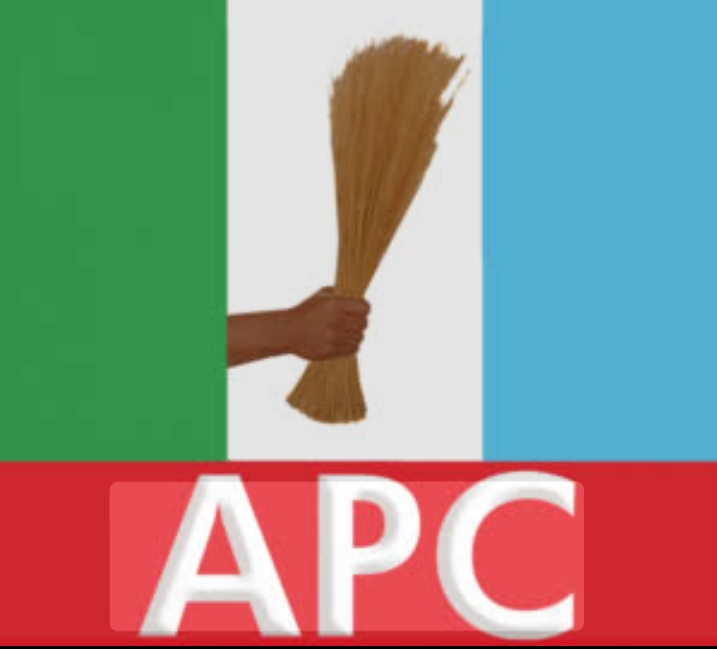
Leave a Reply
Your email address will not be published. Required fields are marked *




